Have you ever felt the weight of financial management as a startup founder? As someone who helps businesses get off the ground, I understand how difficult it is to keep track of every transaction, expense, and invoice. In Nigeria, where business conditions are volatile, being on top of finances is more than just necessary—it’s crucial. Choosing the correct accounting software may make the difference between growth and confusion. That’s why I’ve compiled a list of the top 17 accounting software alternatives for Nigerian startups, based on cost-effectiveness, convenience of use, and features geared to expanding enterprises.
According to Forbes, 70% of firms fail due to cash flow concerns, demonstrating that accounting tools are vital for survival and growth. By the end of this article, you’ll understand which software is most suited to your business objectives and how to avoid typical financial management problems. Whether you’re starting or scaling up, the correct tools can help you achieve long-term success.
The Top 17 Accounting Software for Startups in Nigeria
#1. QuickBooks Online

Why It’s Popular: QuickBooks accounting software is well-known for its adaptability and solid features, which make it suitable for a wide range of businesses, including non-technical startups.
- Key Features: Real-time tracking, invoicing, and payroll connectivity make it extremely customizable.
- Stat Insight: QuickBooks supports more than 4.5 million enterprises worldwide (Statista).
- Pros: customizable invoice templates, expense categorization, and seamless bank connectivity.
- Cons: Higher monthly expenses can pile up, providing difficulty for tiny, cost-conscious firms.
- How It Helps: QuickBooks invoice templates improve cash flow management by saving time on administrative activities. Startups may simply manage their income and expenses thanks to auto-categorization, making tracking their financial health easy.
#2. Zoho Books

Best For: Startups looking for a low-cost solution that supports multiple languages.
- Features: Inventory management, invoice customization, and expense tracking; perfect for small-scale companies.
- Pros: Cost-effective, user-friendly, and suited for Nigerian enterprises, with GST-compliant billing choices.
- Cons: If your startup grows quickly, you will have limited scalability.
- Template Highlight: Zoho’s expense tracking templates make monthly budgeting easier, allowing companies to examine costs and set realistic goals.
#3. Sage Business Cloud Accounting
Perfect for: Startups that require detailed reporting and powerful analytics.

- Features: Supports multi-currency, budgeting, and provides mobile access for entrepreneurs on the road.
- Pros: Customizable dashboards offer insight into cash flow and costs.
- Cons: Limited assistance specifically for Nigerian users.
- Real-World Utilization Case: A Nigerian retail company can utilize Sage’s budget tracking to track expenditure across all products and enhance profitability by identifying high-cost regions.
#4. Xero

Why Nigerian Startups Love It: Xero’s reputation for ease of use and scalability makes it excellent for small and medium-sized businesses.
- Features: Payroll, thorough financial reports, and real-time financial updates enable firms to manage cash flow.
- Pros: Excellent for teamwork, allowing team members to view finances and contribute.
- Cons: Basic inventory features may require upgrading.
- Template Highlight: Xero’s budgeting templates enable startups to create explicit, measurable financial targets, making it easy to adapt and refine monthly plans.
#5. Wave Accounting
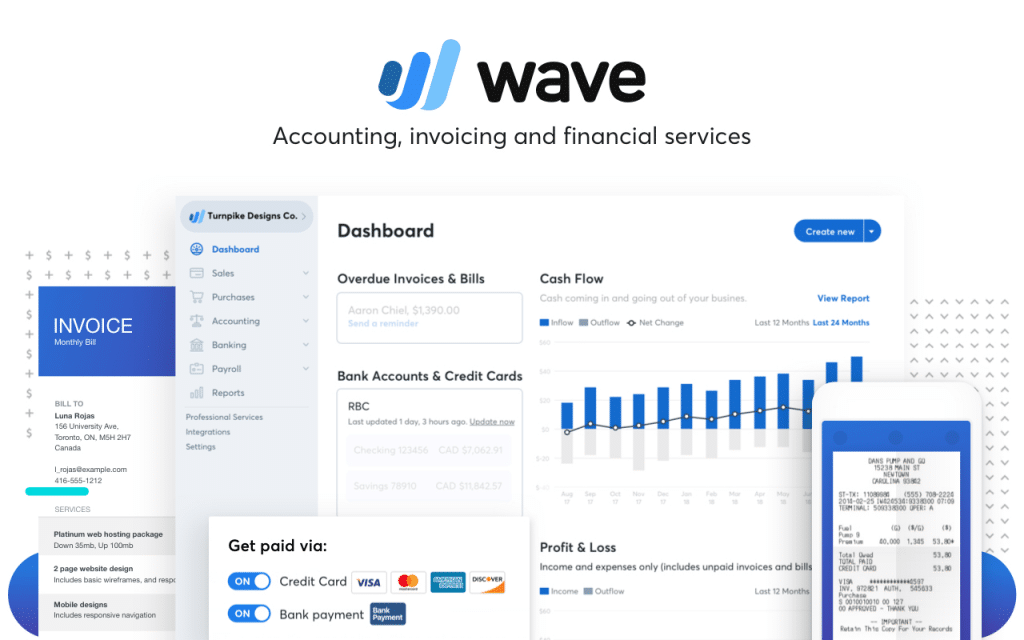
Best for Free Access: The robust free-tier features make it ideal for early-stage enterprises.
- Features: Basic invoicing, receipt scanning, and expense categorization are excellent for small enterprises.
- Stat Insight: Wave is used by more than 250,000 small businesses worldwide.
- Pros: All essential functions are completely free, which is extremely useful for budget-conscious entrepreneurs.
- Cons: The free plan offers limited customer support choices.
- How It Helps: Ideal for freelancers and solopreneurs who want to keep their spending down while keeping precise financial records.
#6. FreshBooks

Target Users: Freelancers and startups who want easy project tracking.
- Features include project monitoring, invoicing, and double-entry accounting.
- Pros: The layout is mobile-friendly and intuitive, making it ideal for small teams.
- Cons: Few third-party integrations.
- Practical Example: Service-based Nigerian companies can use FreshBooks to track billable hours and issue bills that appear clean and professional.
#7. GnuCash
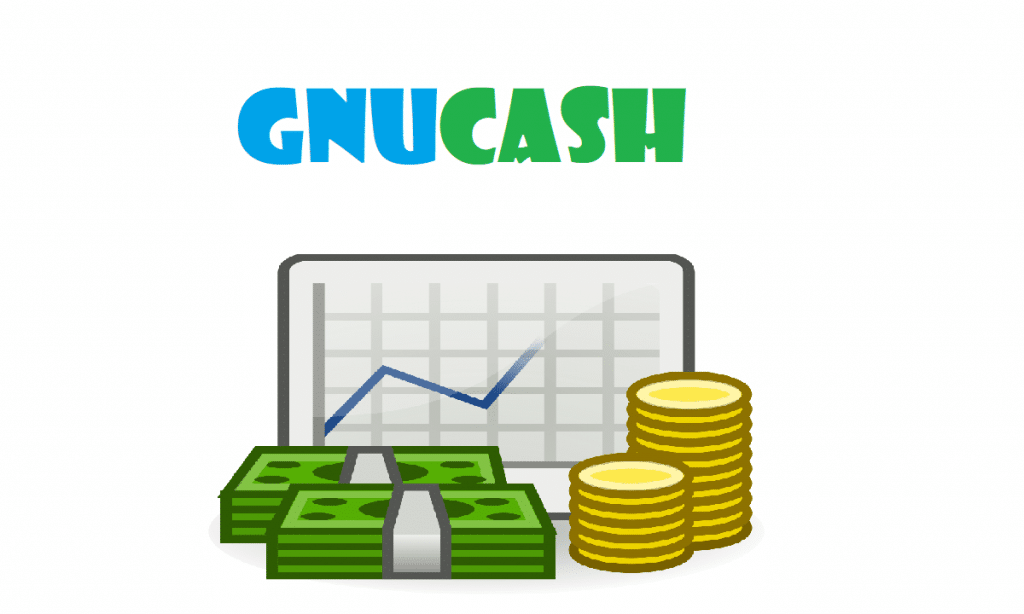
Special selling point: Open-source software that is both versatile and free.
- Features: Includes double-entry bookkeeping, transaction matching, and transaction scheduling.
- Pros: Low cost and customizable, allowing entrepreneurs to scale up as needed.
- Cons: Limited integration with other corporate applications.
- Real-Life Scenario: Freelancers and solopreneurs can use GnuCash to manage their expenses without worrying about subscription fees.
#8. TallyPrime

Popular For: Inventory-driven businesses that require advanced reporting.
- Features: Inventory and cash flow reporting; accounting automation.
- Pros: Feature-rich and designed for organizations with a high inventory turnover.
- Cons: There is limited support for cloud storage.
- Use Case: TallyPrime’s inventory management assures up-to-date stock and sales data, making it ideal for Nigerian businesses that deal with retail or inventory.
#9. Odoo

Why It’s Growing: Open-source ERP software that can be tailored for accounting needs.
- Features include invoicing, spending tracking, and configurable dashboards.
- Pros: Flexibility and integration with a variety of apps.
- Cons: Requires some technical knowledge to set up.
- Practical Use: Growing Nigerian companies can benefit from Odoo’s versatility, especially if they need to integrate CRM, inventory, and human resources services in one place.
#10. Kashoo
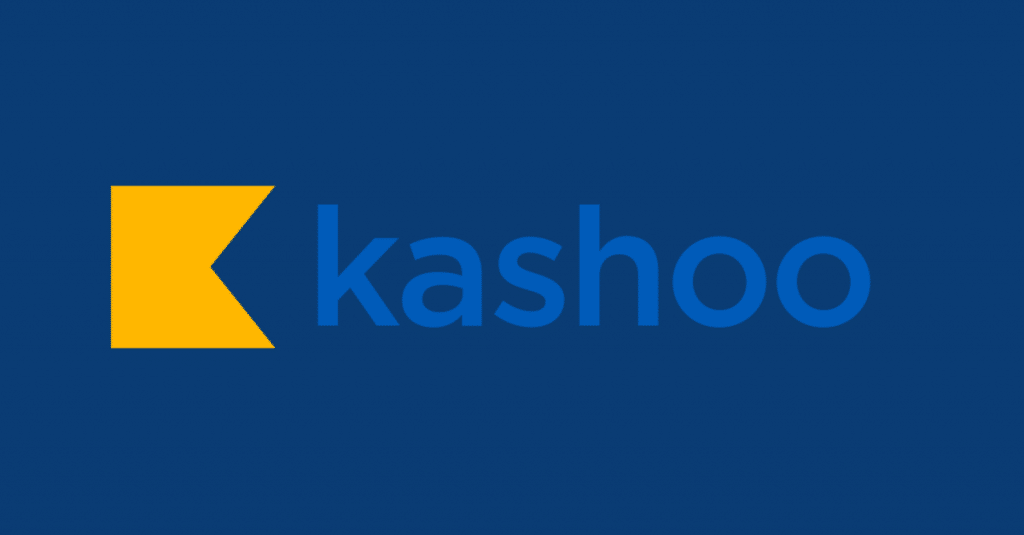
Who It’s For: Small enterprises seeking uncomplicated accounting.
- Features: Track your income and expenses, as well as use tax preparation tools.
- Pros: User-friendly and suited for non-accountants.
- Cons: Limited advanced features for larger organizations.
- Real-World Use: Kashoo’s straightforward, user-friendly interface benefits service-based firms such as consultants and creatives.
#11. OneUp
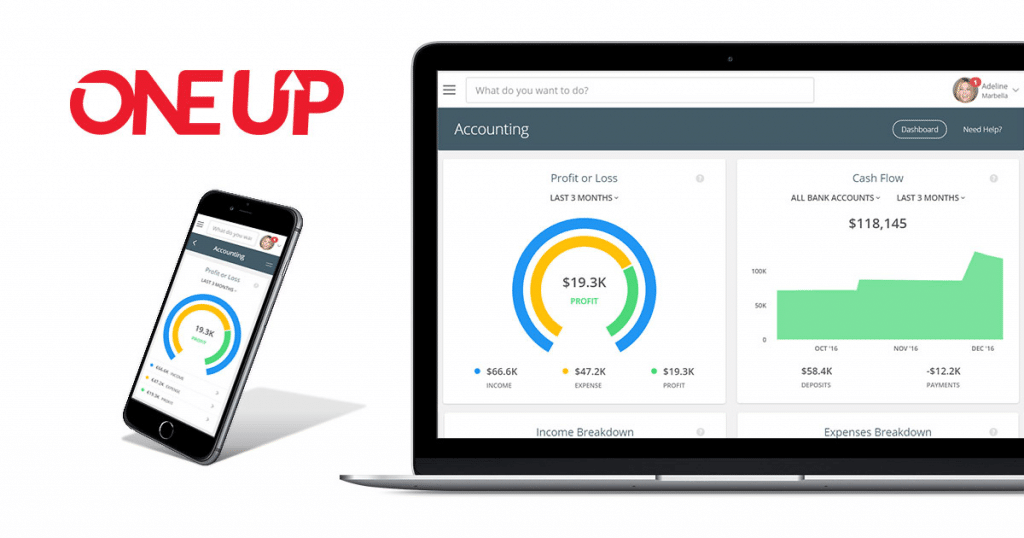
Target Audience: Ideal for startups that combine CRM and accountancy.
- Features include sales monitoring, lead management, and accounting tools.
- Pros: Combines CRM and accounting to ease sales tracking.
- Cons: Limited reporting choices for in-depth analytics.
- How It Helps: OneUp is ideal for companies that manage leads and sales through their accounting software.
#12. Manager.io
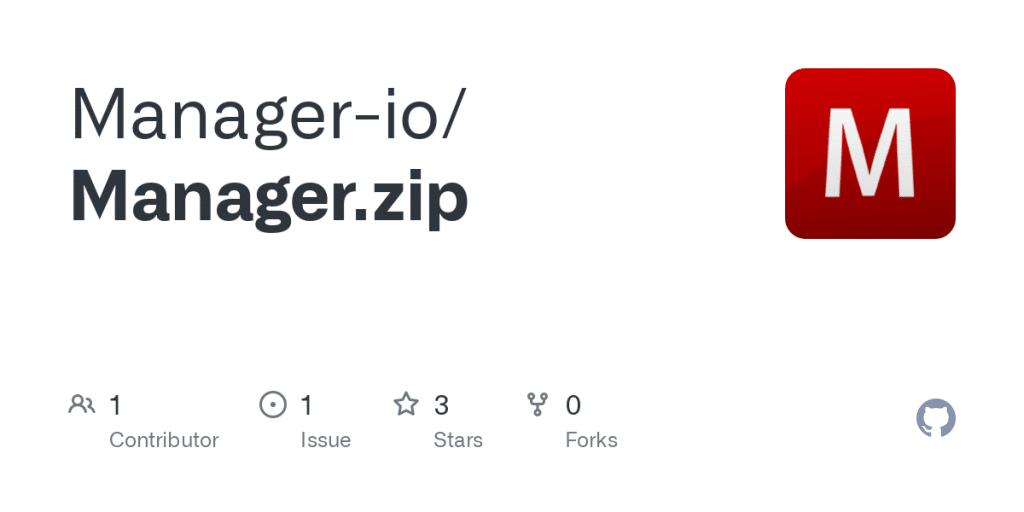
Ideal For: Those seeking offline solutions.
- Features include basic invoicing, financial reporting, and contact management.
- Pros: A free offline version, ideal for startups with restricted internet connection.
- Cons: Limited integration choices.
- Use Case: Ideal for Nigerian entrepreneurs who require dependable offline solutions.
#13. ZipBooks
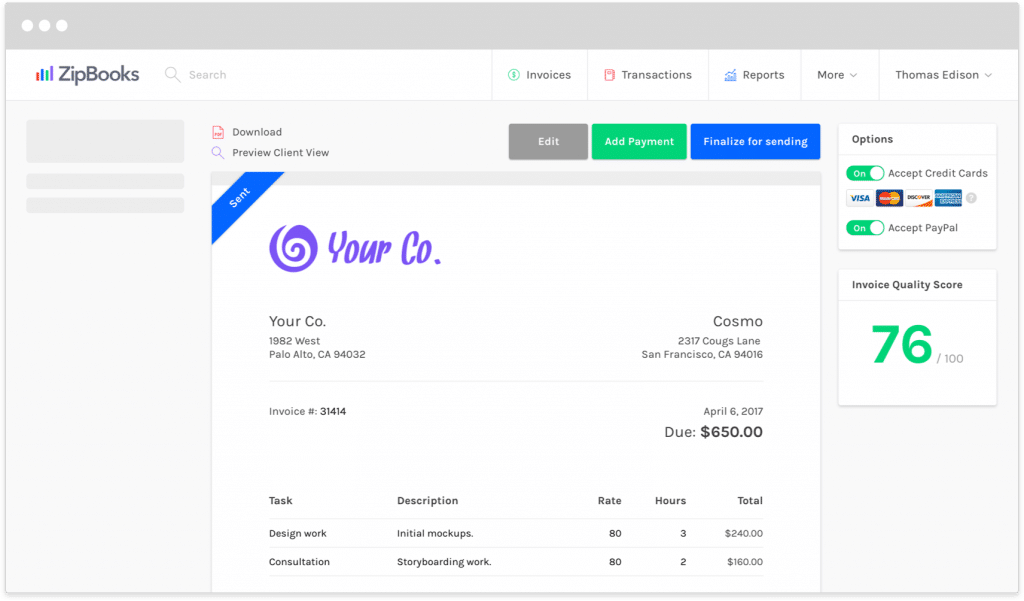
Perfect For: Startups that require collaborative tools.
- Features: Automatic billing, invoicing, and spending tracking.
- Pros: Collaborative tools facilitate teamwork.
- Cons: Limited customisation.
- Real-Life Scenario: ZipBooks can help Nigerian consulting firms or agencies manage clients, track bills, and arrange spending.
#14. Busy Accounting Software
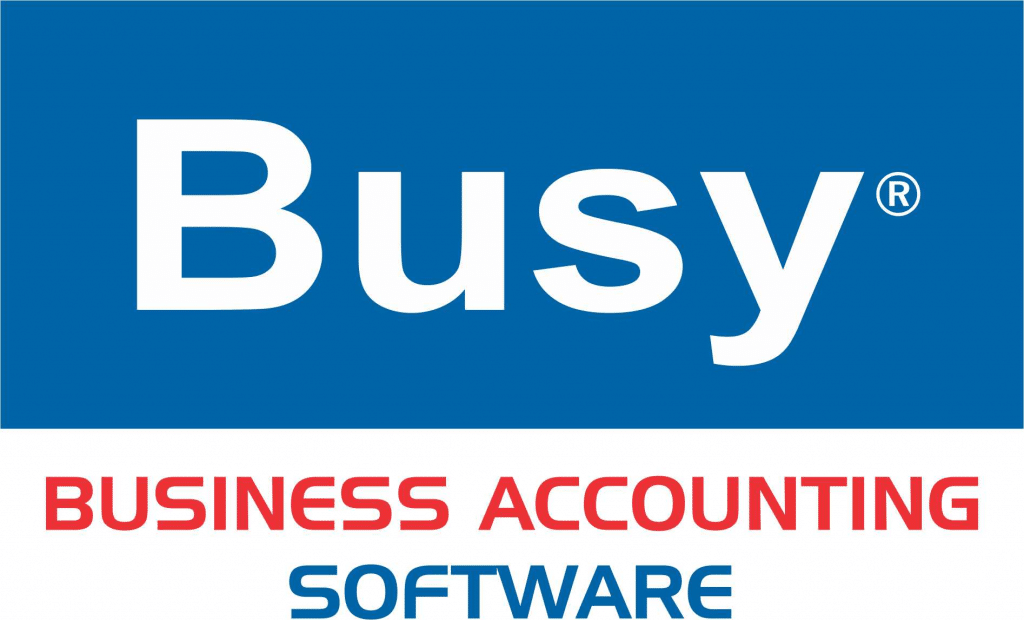
Strength: Recognized for exceptional inventory management.
- Features include financial reporting, GST billing, and inventory monitoring.
- Pros: Ideal for enterprises with large inventory requirements.
- Cons: Limited cloud functionality.
- Application: Ideal for Nigerian small manufacturers or wholesale enterprises that handle huge quantities of merchandise.
#15. Sunrise

Target Audience: Freelancers and small companies.
- Features: Basic invoicing, bookkeeping, and cost tracking.
- Pros: User-friendly interface geared toward freelancers.
- Cons: Limited advanced features.
- Practical Use: Sunrise is great for creative firms like designers and content makers that require simple invoicing.
#16. Account Edge Pro

For Whom: Startups prepared to grow.
- Features include payroll, time billing, and comprehensive reporting.
- Pros: Extensive feature set that can be scaled as the startup grows.
- Cons: Expensive for smaller startups.
- How It Helps: A Nigerian startup aiming to grow its workforce can utilize AccountEdge’s payroll and time tracking to optimize HR operations.
#17. MyBooks
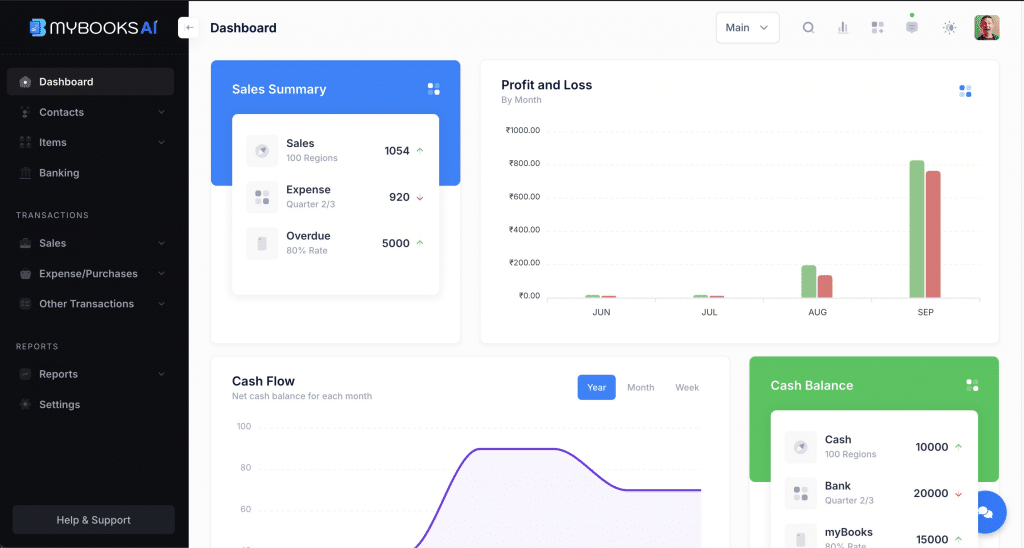
Why It’s Useful: Small enterprises will find it easy to use and economical.
- Features: Invoice, income, and cost tracking.
- Pros: Cost-effective with essential functionality.
- Cons: Limited scalability.
- User Tip: MyBooks is great for tiny Nigerian entrepreneurs who require simple accounting operations without breaking the bank.
Many of these software alternatives include templates for billing and budgeting, which is very important for Nigerian startups with multiple responsibilities. Using templates ensures that invoices, budgets, and cost reports are uniform and professionally arranged, which simplifies financial management responsibilities.
Key Takeaways
- For new startups, there are free and low-cost choices available, such as Wave and Manager.io.
- Software such as Sage Business Cloud and TallyPrime provide alternatives tailored to the needs of African businesses.
- Tools like QuickBooks and Zoho Books offer templates to help with tasks like invoicing and budgeting.
- FreshBooks and AccountEdge Pro provide scalable choices that can expand with your company.
- Many of these software solutions are intended to be accessible and simple to use, even by persons with little accounting experience.
Why Is Accounting Software Essential for Nigerian Startups?
In Nigeria’s dynamic and rapidly evolving business scene, entrepreneurs confront unique issues in managing cash flow, tracking spending, and ensuring tax compliance. Unlike human bookkeeping, which is time-consuming and error-prone, accounting software automates financial operations, allowing companies to focus on growth. According to current data, poor cash flow management is responsible for more than 60% of business failures among startups. Accounting software helps to avoid this by offering real-time insights into financial health, alerting business owners to problems early on, and allowing them to make informed decisions that keep the company on course.
What Should I Look For in Accounting Software?
When choosing accounting software, consider the following factors:
- Ease of Use: As a startup owner, you need software that is easy to use and does not require substantial accounting knowledge. Look for intuitive dashboards and guided features.
- Affordability: Because startups frequently operate on tight budgets, consider software that provides low-cost plans or free versions that suit your fundamental requirements.
- Customization Options: Look for software that can be tailored to your unique business model, whether you require inventory management, CRM connection, or project-based accounting.
- Scalability: As your business grows, choose software that can expand with you by adding users or advanced features.
- Local service and Compatibility: Because Nigerian firms may have unique tax regulations or reporting requirements, selecting software that includes local customer service and compliance capabilities can be a considerable benefit.
How Can Templates Help You Manage Your Finances?
Accounting software frequently offers templates for invoicing, budgeting, and spending management, which assist in standardizing and streamlining daily processes for startups. For example:
- Invoicing Templates: These ensure that all invoices are consistent and professional, with simple choices for adding payment conditions and late fees, allowing startups to keep a continuous cash flow.
- Budgeting Templates: These enable companies to set financial goals, track spending against budgeted amounts, and make modifications as needed, maintaining financial stability.
- Expense Tracking Templates: These templates automatically categorize expenses, reducing manual entry errors and providing a more accurate view of where funds are going. This enables startups to discover excessive spending and reallocate resources as needed.
Using templates in accounting software saves time while also ensuring accuracy and consistency, which is critical for financial reporting and analysis.
Are There Any Free Accounting Software Options?
Yes, free accounting software choices such as Wave and Manager.io provide fundamental functionalities that can assist cost-conscious startups.
- Wave: A cloud-based program that provides free invoicing, expense management, and financial reporting, making it suitable for start-up firms. Although Wave’s free edition lacks advanced functionality, it is adequate for companies that want basic financial management.
- Manager.io: This offline program is free to use and contains useful features such as invoicing and reporting. While it lacks cloud storage, it is great for Nigerian companies operating in locations with restricted internet access, as it allows for offline functionality and subsequent syncing.
These choices provide a good basis for startups that want to manage their finances without committing to costly subscriptions.
Can I Manage Payroll using Accounting Software?
Yes, some accounting software, including QuickBooks and AccountEdge Pro, provide integrated payroll solutions, which are quite useful for startups as their teams develop. Payroll features usually include:
- Automated Payroll Calculations: Automatically calculates employee payments, tax deductions, and benefits.
- Payroll Reporting: Provides detailed information on payroll expenses, allowing firms to predict labor costs and comply with Nigerian tax rules.
- Employee Self-Service Portals: These portals enable employees to access pay stubs, tax forms, and other payroll-related paperwork, reducing HR workload and increasing transparency.
Payroll integration is crucial for startups looking to scale quickly and handle employee compensation with ease and accuracy, particularly as their workforce grows.
Conclusion
Choosing the appropriate accounting software is one of the most valuable investments you can make as a startup. With alternatives to suit any budget, the tools on this list can help you manage your money and focus on growth. From free solutions to feature-rich tools, there is something for every Nigerian entrepreneur.
So, which accounting software would you use to streamline your business finances?
- 5 Reasons to Switch to Free Invoice Software in 2024
- Functions Of The Stock Exchange: A Detailed Guide
- The Top Best Business Loans For Startups With Bad Credit in 2024
- Fastest Ways To Make Money Online In Nigeria
- Best Business Credit Cards For Startups In 2024






